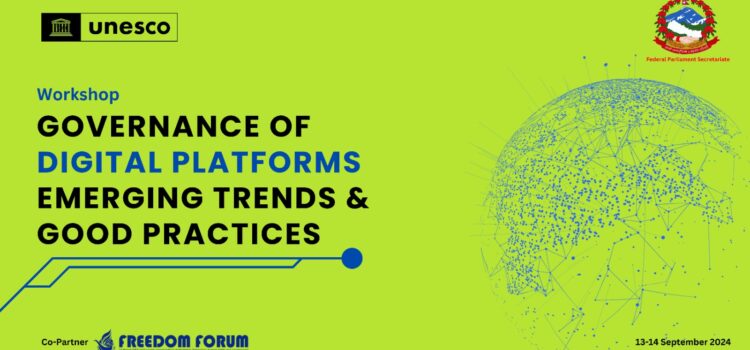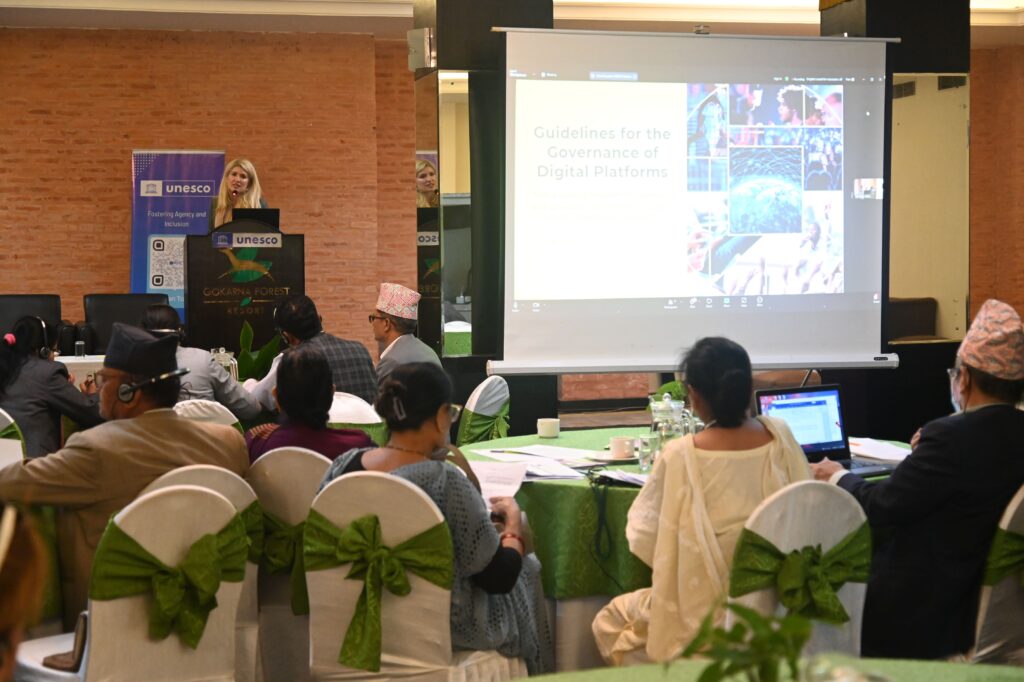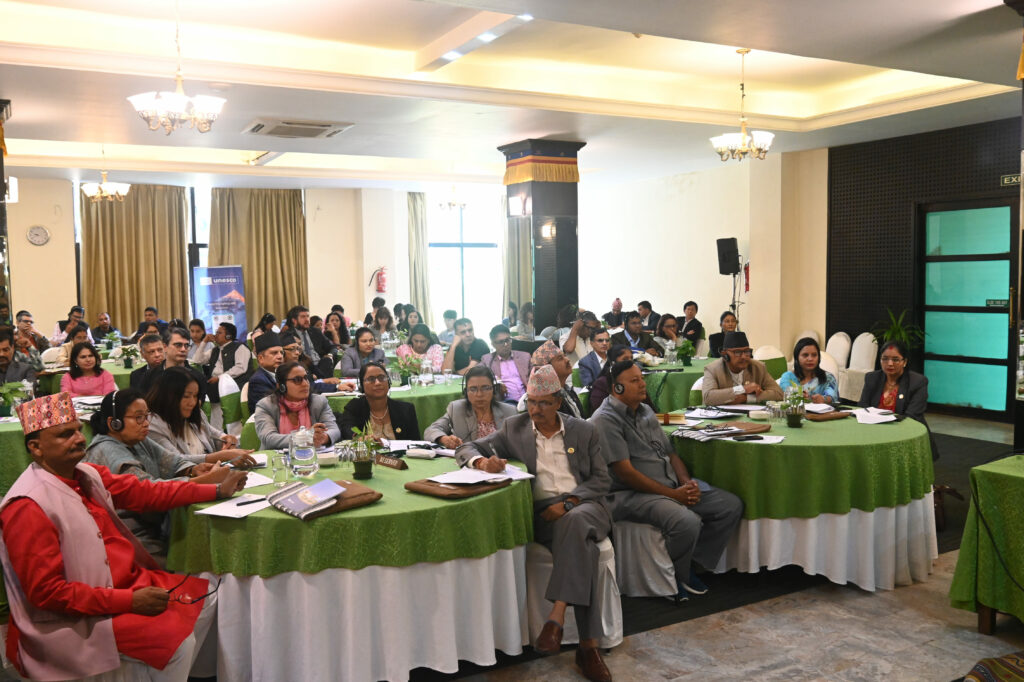The parliamentarians from both the House of Representatives and the National Assembly committed to making the laws related to digital platform governance human rights-centered.
In the workshop cum orientation, they were made aware about various aspects of digital platforms like freedom of expression and privacy so that they could make their role effective for contextual, accountable, inclusive governance of digital platforms.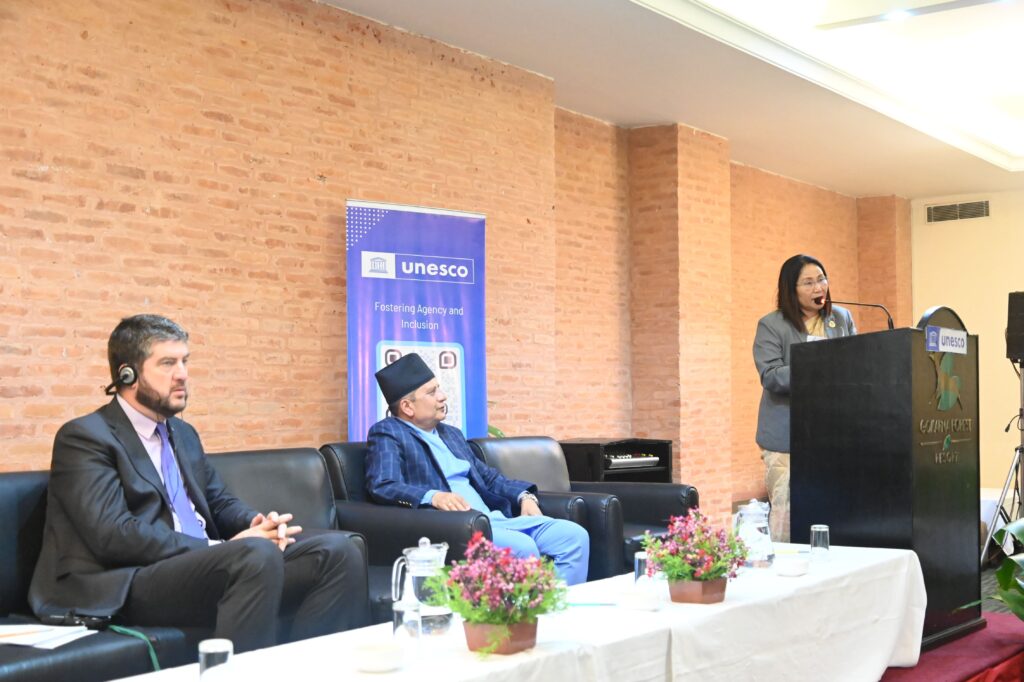
They made commitment during the two-day workshop held in Kathmandu from September 13-14.
Freedom Forum collaborated with UNESCO and the federal parliament to conduct the workshop on “The Governance of Digital Platforms Emerging Trends and Good Practices”
Total 26 Members of Parliament, and around 46 representatives from the parliament’s secretariat, National Human Rights Commission (NHRC), Ministry of Communications and Information Technology (MOCIT), civil society organizations, media and academia attended the workshop.
The first day of the workshop witnessed exploration of human-rights-centered approaches for the governance of digital media platforms in Nepal, held closed session was held among parliamentarians, government officials and representatives from NHRC.
During the session, UNESCO Representative to Nepal Michael Croft and expert from UNESCO head office shared recently launched “Guidelines for the Governance of Digital Platforms” which aims at promoting freedom of expression and access to information while mitigating the risks associated with content.
The guidelines also emphasize the responsibilities of governments, platforms, intergovernmental organizations and civil society in establishing independent governance systems and minimizing the fragmentation of regulatory efforts globally.
In the program, Deputy Speaker Indira Ranamagar and NHRC’s Commissioner Manoj Duwadi stated that the workshop would be a great learning experience for the lawmakers and other concerned stakeholders to draft laws and policies protecting rights of Nepali people in digital platforms in line with international standards of human rights.
Freedom Forum’s Chief Executive Taranath Dahal facilitated the session that dwelt on government’s efforts on digital laws, parliament secretariat’s role and NHRC’s watch on human rights aspects on digital sphere. He also shed light on nature of digital platforms and need for protecting and promoting FoE on digital spheres.
He believed the UNESCO guidelines would be a helpful tool to create policies to regulate digital platforms in Nepal.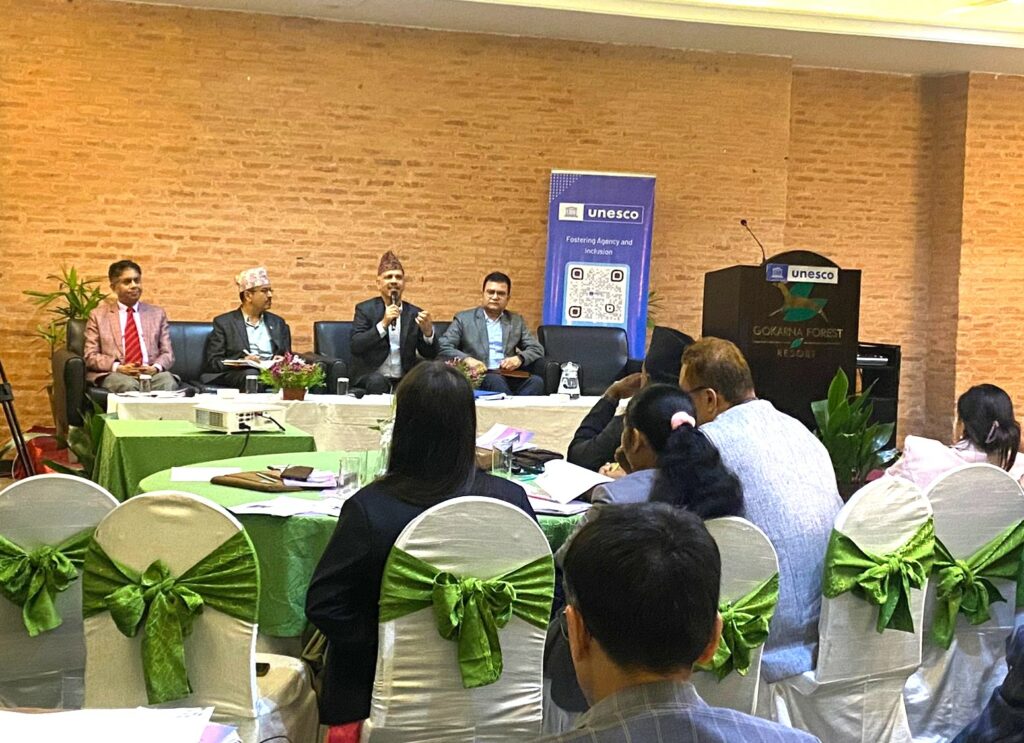
On the second day, an open discussion was held among parliamentarians and representatives from CSOs, media and universities.
Tiktok representative Sidra Jalil expressed commitment to localizations of Tiktok standards and guidelines for content moderation and Tiktok governance. Though there is a timeline of 15 days to remove the harmful Tiktok content based on the complaints received from the community guidelines, they will promptly respond to harmful contests against children and minorities, and so on, she added. She, however, acknowledged the issue of the language barrier and the needs to localize the content moderation tools, and promote its right use raised during the event.
Similarly, a representative from IT for Change Malavika Rajkumar shared current practices in India for content regulation on digital platforms and emphasized that governments in South Asian countries should regulate digital platforms’ through rights based approach more specifically addressing the needs of marginalized people.
The representatives from CSO showed concern over the problematic law making process in Nepal which lacks multi-stakeholders’ consultation and does not follow basic national and international norms of human rights.
It was stated that though Nepal’s more than 90% people engage on internet, citizens’ have been victimized due to weak negotiation with the giant technological companies such as Meta and TikTok.
Moreover, representatives from other stakeholders raised concerns about ensuring civic space on digital platforms, increasing censorship on social media, inclusion of indigenous peoples’ rights on the digital platforms among others.
The workshop also engaged the participants in group exercises to gather their perspectives on the adoption of UNESCO’s directives in Nepal, strategies to be undertaken by diverse sectors for digital platforms’ governance in context to Nepal.

